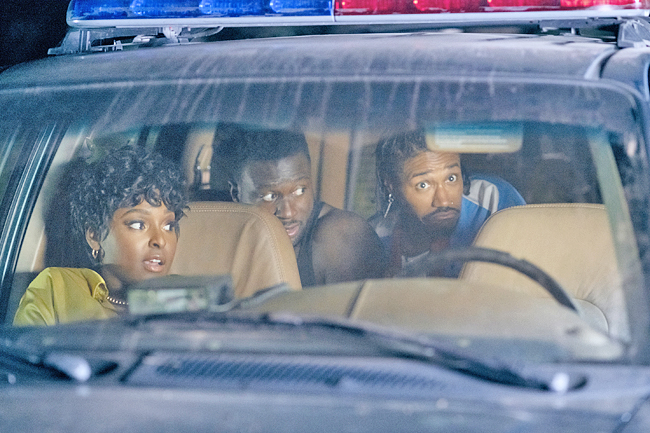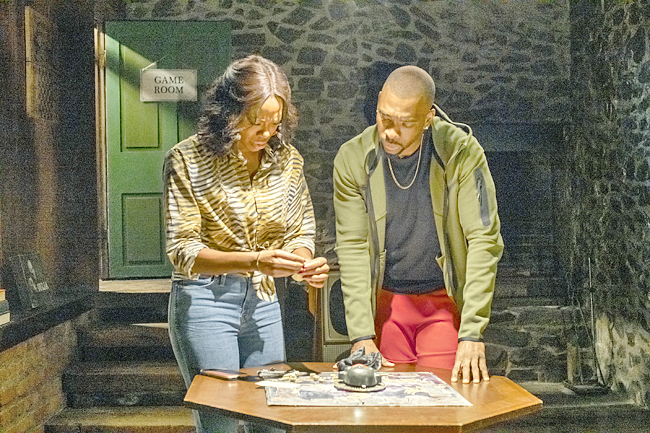Olivia McCormack
THE WASHINGTON POST – Film historians and stand-up comics alike agree: In horror movies, Black characters get the raw end of the deal, usually fatally. That explains the tag line of The Blackening, a film with an all-Black cast that uses humour to subvert horror: “We can’t all die first.”
The film opens with an on-screen description – “The following is based on true events… that never happened” – aptly setting the tone for this comedy-forward film that loosely falls within the horror genre.
The premise will sound familiar: A group of pals from college reunite at a woodsy cabin rental, in this case for a Juneteenth celebration. From the first scene, it’s clear that director Tim Story and screenwriters Tracy Oliver and Dewayne Perkins are trying to make the audience laugh more than quake in their seats.
The first couple to arrive, Shawn and Morgan (Jay Pharoah and Yvonne Orji), discover a hidden game room that was not listed on the booking site. As they investigate further, they stumble on a mysteriously animated board game called The Blackening, in which a talking head, in blackface – “powered by racism”, Shawn cracks – directs the pair to pick a card. The duo soon learn that the penalty for an incorrect answer is death: A man in a black mask, wielding a crossbow, kills Shawn. It’s ominous, but no worse than an R-rated action movie.
When the seven other friends arrive (played by Grace Byers, Melvin Gregg, Perkins, Sinqua Walls, Antoinette Robertson, X Mayo and Jermaine Fowler), they find the game room locked, so they spend a drug- and drama-filled evening waiting for the couple to return. As the group is bullying Fowler’s nerd Clifton – the group’s odd man out, and one who has shown up seemingly uninvited – for his inability to play spades, the lights go out. When the lights come back on, the door to the game room is inexplicably open, and the gathering is subsequently trapped inside.


Here they encounter more murderous gameplay, forced to answer such trivia questions as, “Who is Sojourner Truth?” and “Name five Black actors that appeared on the TV show Friends,” in what one of the group dubs Jim Crow Monopoly.
The framing may use the tropes of horror, but the film’s light tone – with jump scares more often used for comedic effect – defuses the tension required to make viewers feel on the verge of snapping. In other words, it’s only technically a horror movie, in the same vein as the Scary Movie franchise.
Fortunately, The Blackening is often hilarious. Co-writer Perkins’s character, Dewayne – the best friend of one of the girls on the trip, who is perpetually exasperated by her decision to return to her cheating ex – is riotous, always ready with a quip and excellent timing.
“Go, save yourself,” he urges one of his friends, only to announce moments later, “I was joking!”
The joke, along with dozens of others, is heightened by the development of Dewayne’s character. And generally speaking, the film takes the time to create distinct and three-dimensional personalities for all its characters, far more so than in most horror films (or most comedies, for that matter). Frequent detours to achieve this character-building leave the film feeling overlong at times, something the barrage of jokes – neither especially thoughtful nor astute – can’t remedy.
Playing to stereotypes of the Black experience in America, the film includes frequent references to wig glue, Black men with White wives and distrust of the police. There are some poignant lines, like asking why Black women must carry the weight of the world on their shoulders, but the majority of the film is a lesson in one-liners, not racial politics. If you don’t like a joke, don’t worry. Another one will arrive within the minute.






